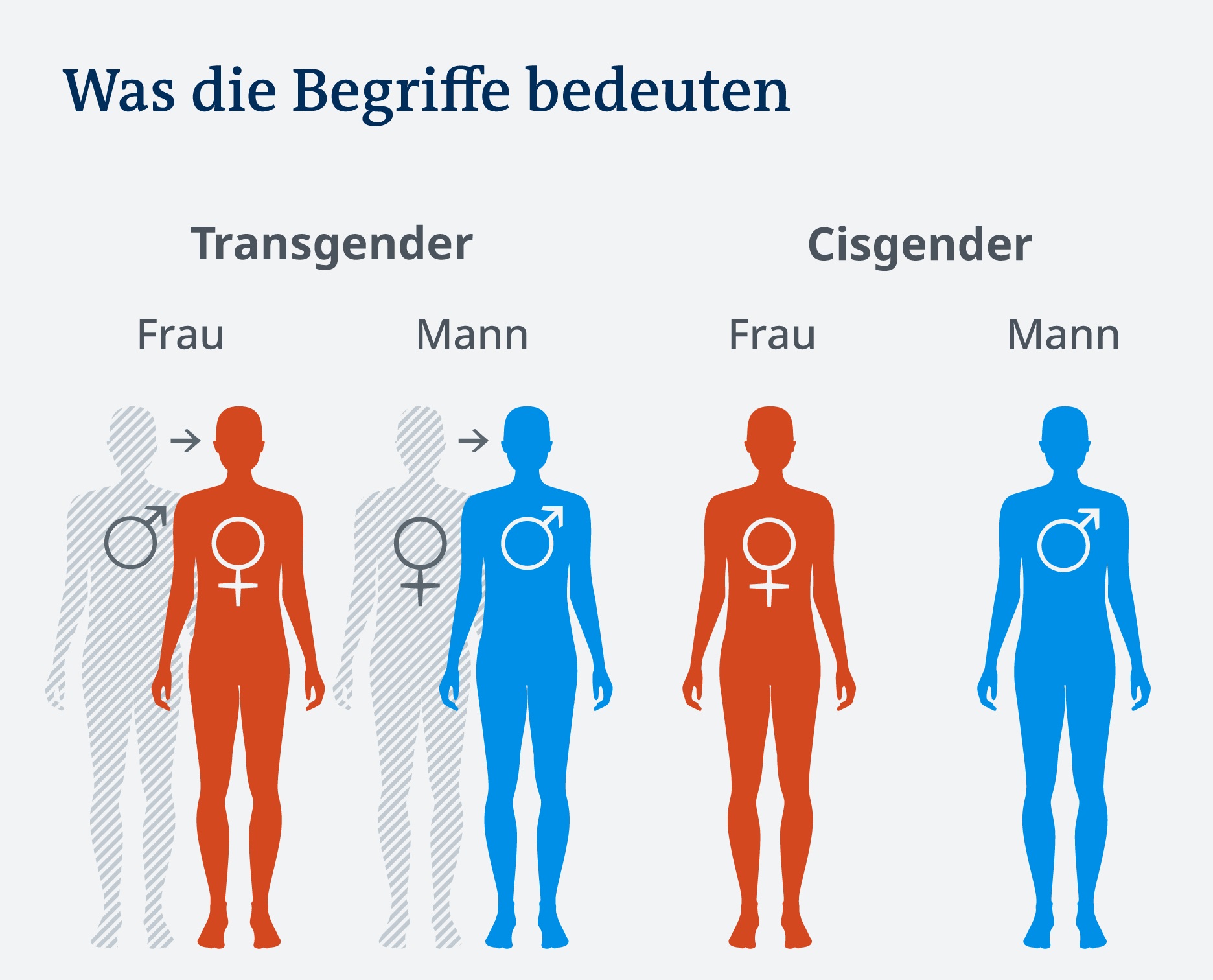People who are transgender do not identify with their biological sex - the sex they were assigned at birth. Often the feeling is described with the words "It's like being in the wrong body!". However, many trans people are now bothered by this description. Because: It implies that the affected person would be "wrong" in itself. And that is exactly not the case.
Rather, he has realized over time that his innate, physical sex and gender identity do not match. Exactly when this realization comes to light can vary from person to person. Sometimes this process begins earlier and sometimes later. Quite a few trans people report having noticed that "something is weird" already in childhood. However, there is no standard here. The same is true for the "perfect coming out" time. When it is time to open up to others, each person decides for themselves.
Not all trans people resort to gender reassignment surgery

People who have not yet become more closely involved with the community are often of the opinion that "all trans people have their operations done". However, this is a classic prejudice.
There are certainly many individuals whose biological sex does not match their gender identification, but who have chosen not to undergo gender reassignment procedures.
In general, this is a decision that requires a lot of preparatory work (also in psychological terms). Or in other words: "Just popping in" to the hospital and having an operation is of course not possible. Instead, a gender reassignment surgery is preceded by long consultations and several examinations.
What does "trans*" actually mean?
The spelling "trans*" is used more and more often lately. With their help, the different "currents" within transsexuality can be better described. A typical example: A trans* man is a man who had female sexual characteristics at birth. Conversely, a trans* woman and a woman who was born with female sexual characteristics.
In the course of time, the terms transsexual, transgender and transsexual, among others, have also become naturalized here.
If you want to be particularly precise, you do not speak of a transsexual person, but for example of a trans* man or a trans* woman.
A look into the past: "trans" as a swear word
The word "trans" has always been charged differently - and sometimes positively, sometimes negatively - throughout the ages. Times in which transsexual people were particularly valued were followed by times in which persecution and discrimination were the order of the day for them. Even today there are many countries where it is forbidden to show oneself on the street as a transsexual who does not conform to the common cis norms.
According to statistics, transsexuals are particularly often victims of violence. Some of them therefore hide behind an apparent cis identity and thus protect themselves from assault.
In homophobic circles, the word "trans" is still used as a swear word. Here then often the "tranny" is spoken of. On the basis of various laws and harsher punishments for homophobic attacks, transsexual people should be better protected in many countries in the future. Fortunately, many governments have already recognized how important it is to follow up here and promote education.

Trans are really the best friends mega empathetic I personally find. No matter if trans man or trans woman. But there is also a lot to it if you are in the wrong body and feel uncomfortable in the body that you have now. Therefore, I understand it absolutely that just trans people are so sensitive and like to help others!
I always confuse trans man with trans woman. I always thought a trans man is born a man but it is a born woman who feels like a man.
That's what I call a detailed answer. Must admit I've always seen it rather superficially. Cool text thanks for that.